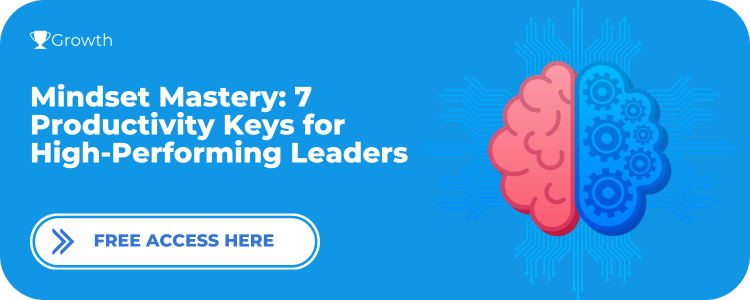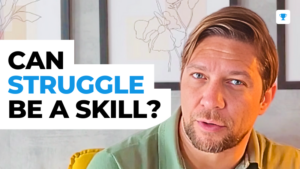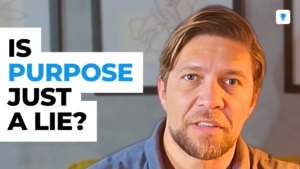
✅ FREE ACCESS: Mindset Mastery: 7 Productivity Keys For High-Performing Leaders
What if I told you there are 4 transformative steps that can lead you to a life of limitless possibilities and remarkable achievement?
Does it sound like too much?
So stick around because today, we’re going to learn the 4 Steps to Developing a Growth Mindset that will set you on a journey to become part of the 1% most successful individuals by transforming your mind into a creative machine of endless possibilities.
But before we get into it, make sure you grant your lifetime access to our free WorkBook: Mindset Mastery: 7 Productivity Keys for High-Performing Leaders.
This is your chance to make the mindset shift you need to take your goals out of the dream world and bring them into reality.
The Idea of a Growth-Focused Identity
Developing a growth mindset means adopting a growth-focused identity.
Identity is important because this is not something you must do, it’s something you must become.
To develop this growth-focused identity, you need to master these 4 steps:
1) Develop your IP address.
2) Seeking meaning instead of happiness.
3) learn The Art of The Growth Loop.
4) Nurture a Growth Ecosystem.
Each one of them plays a foundational role in building your identity over time.
Step 1: Develop Your IP Address
Your identity shapes your beliefs, actions, and ultimately, your achievements.
It is the lens through which you perceive the world and, in turn, how the world perceives you.
When you embrace a growth-focused identity, you shift from viewing your qualities and abilities as fixed traits to recognizing their malleability and potential for growth.
This transformation sets the stage for a journey of continuous learning and personal development.
To undergo this personal development, you must find your passion.
How to Develop Your IP Address For a Growth-Focused Identity
Finding your passion is not an archeological dig. It’s an architectural build.
You build your passion by developing your IP address.
Your IP address, in reference to the World Wide Web, is where people will find you.
- “I” stands for interest.
- “P” stands for passion.
Interest is when you look inwards and find something that gives more energy than it takes.
Passion is when you commit to developing that interest over time, get positive feedback from the world, and become known for that.
When you become known as the go-to person in that field, that’s your IP address in the world of that field.
As Simon Sinek, the author of Start With Why stated:
“People don’t buy what you do; they buy why you do it.”
When you align your goals with a passion-driven identity, your actions become more intentional and infused with a sense of meaning.
Challenges no longer feel like obstacles but rather opportunities for growth and learning.
You understand that mistakes are not reflections of your worth but stepping stones on the path to success.
Step 2: Seek Meaning Instead of Happiness
One of the hallmarks of the Psychoanalytic Theory is that you learn by voluntarily facing what frightens you.
Carl Jung, the father of Analytical Psychology primary dictum was: “In Sterquiliinis Invenitur”
Which is Latin for “In Filth you will find.”
This means, what you need to see the most will be found where you last want to look.
It’s often the case that the most transformative experiences are painful ones.
That happens because stepping into the unknown requires acknowledging your vulnerability and humility in the face of what you don’t yet master.
Facing that voluntarily is to believe that there’s more to be learned than what you already know.
And the ultimate result of that learning is to make you more than you currently are.
It is through these transformative experiences that we find the proper meaning of life – a life rich with passion, growth, and self-realization.
In her book Rising Strong, Brené Brown tells us that:
“Vulnerability is not winning or losing; it’s having the courage to show up and be seen when we have no control over the outcome.”
That’s why humans are not happy-seeking creatures. Humans are meaning-seeking creatures.
Happiness is a safe place. Meaning comes from understanding that becoming is better than being.
But that becoming demands sacrifices that will not make you necessarily happy in the short term.
So, happiness is a low goal for meaning-seeking creatures like us humans.
Seek happiness and you won’t find it.
Seek meaning and you might find happiness throughout the journey.
Step #3: Learn The Art of The Growth Loop
The Art of The Growth Loop is where you allow yourself to learn from your experiences, adapt, and make progress.
The Growth Loop is made of three critical elements:
Element #1: Feedback
The world doesn’t happen for you. The world happens from you.
Everything you do produces a reaction in the world.
We call that – feedback.
Most of your regulatory behavior comes from it.
Maybe you told a joke that nobody laughed at or you decided to wear something that attracted the attention of interesting parties.
Feedback provides valuable insights into areas for improvement and helps you understand your weaknesses and strengths.
Element #2: Adaptation
Based on the feedback received, you make adjustments and adapt your approach.
So, when you tell a joke that doesn’t land, maybe you should review your sense of humor or talent to tell jokes, for example.
Or when you wear something that attracts the attention of interesting parties, maybe you should repeat that more often.
This flexibility allows you to respond to situations and challenges in a productive way.
Element #3: Progress
You can only progress if you know where you were, where you are, and where you’re heading.
And if you’re thinking:
I have no idea where I was, where I am, and especially, where I’m going, listen to this:
As you receive feedback and adapt, keep track of your progress.
By tracking your progress, you intentionally and productively build your past, present, and future at the same time.
You can track your progress through journaling or by simply listing your achievements.
Once you adopt the Art of the Growth-Loop using these 3 elements in your daily life, you Unleash your Problem-Solving Creativity and Innovation.
As Albert Einstein famously said,
“Imagination is more important than knowledge. For knowledge is limited, whereas imagination embraces the entire world.”
Cultivate creativity by being intentional about the feedback you receive from the world, the proper adaptation to that feedback, and tracking your progress for creative innovation.
In the Mindset Mastery Workbook you will learn the 7 mindset keys of the 1% most successful entrepreneurs. Each mindset key is filled with step-by-step implementation processes and easy-to-follow instructions.
By granting your free lifetime access today, you will not only develop a growth-driven identity now, but also, have access to all future updates at no cost.
Step 4: Nurture a Growth Ecosystem
Just as a plant needs a nourishing environment to thrive, we also require a growth-driven ecosystem that supports our aspirations.
Surrounding yourself with like-minded individuals who value personal and professional development is a crucial aspect of nurturing a growth ecosystem.
As social beings, we are profoundly influenced by the beliefs, values, and aspirations of those we interact with regularly.
Jim Rohn, in his book The Five Major Pieces to the Life Puzzle, states that:
“You are the average of the five people you spend the most time with.”
Seek out friendships and communities that encourage learning and personal growth.
A workplace that provides opportunities for skill enhancement and values continuous improvement.
Spend time with individuals who inspire and challenge you to reach higher levels of development and success.
Collaborate with peers and colleagues by sharing knowledge, experiences, and ideas with them.
Our relationships can make us better or bitter.
That happens because habits are not learned. Habits are imitated.
If you live around 10 successful people, you will be the 11th.




